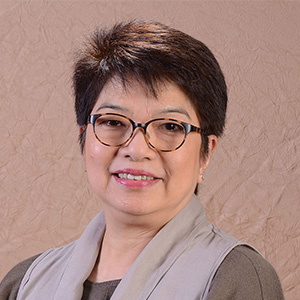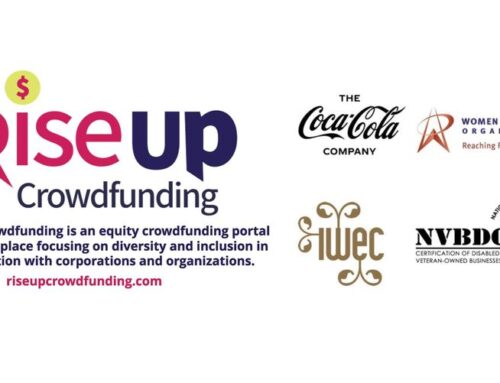Congratulations to IWEC Past Awardee, Pacita Juan, on her article in Business World, Manila, Philippines on Women and the Industrial Revolution 4.0. And to Dato Hazimah, IWEC Past Awardee, who spoke at the Forum.
Posted on June 27, 2017 by Pacita Juan
Industry 4.0 is the current trend of automation and data exchange in manufacturing technologies. It includes cyber-physical systems, the Internet of Things and cloud computing. Industry 4.0 creates what has been called a “smart factory.”
I was fortunate to have attended the ASEAN Forum on Fostering Women’s Entrepreneurship organized by UN ESCAP and Singapore Management University. There was an impressive roster of speakers, some of whom may figure in our ASEAN Women Business Conference on Aug. 31, if they happen to be available then.
One of the best speakers is Dato Hafsah Hashim, CEO of SME Corp. of Malaysia. She shared with us how Malaysia starts girls and children into wanting entrepreneurship. First of all, entrepreneurship as a subject is mandatory in Malaysia. In grade school, children are taught the value of money and they develop Kid-Ed-preneur programs to do this. In high school, the students are introduced to what you would call a Business Canvas, introducing components of an enterprise.

“It is not just the Internet of Things (IoT) but the Internet of Everything” she says. In this day and age, you can no longer just stand there, you have to do something. Yes, it is quite stressful because businesses are taken over by technology and are outdated sooner than later. So Dato Hashim reminded the audience to look at Megatrends, like Robotics, 3-D Printing, and e-commerce.
TRANSFORMATION
The only thing that cannot be replaced by information technology or IT is empathy. And luckily, women have this in great amounts. This may be the differentiator as women are less likely to benefit from the ASEAN Economic Community (AEC). Unless we look at megatrends, women will be stuck. Numbers show that 70% of women who go into business get stuck when the problems become more complex, such as logistics and connectivity.
“Women must transform their being problem solvers into businesses. Look for businesses that solve problems,” according to Nadira Yusoff of Nadi-Ayu Technologies of Malaysia. Nadira has projects like Girls in Tech, empowering young girls to learn coding and getting familiar with careers in Technology. As Nadira says “women are natural problem solvers” because they balance home and work life, they look for innovative solutions to everyday problems. “What women lack is the awareness of new technologies like nano technology. This awareness can allow women to commercialize their solutions to problems” she continues.
NEVER TOO LATE TO START
Dr. Wandee Khunchornyakong of Solar Power started in her mid 50s when Thailand started the Feed-in-Tariff (FiT) program and would buy energy from independent producers like her. She is an innovator in renewable energy as she now uses technology to monitor and analyze data from her 36 solar farm projects in 10 provinces all over Thailand. In the recent past, she had to rely on calling each station to check how the weather was, as solar panels need a certain amount of sunlight everyday to be efficient. Today, she invested in technology to monitor the solar farms and data is now at her fingertips. This allows her to become more efficient and become more profitable.
When she started in 2010 from zero megawatts, she now produces 6,000MW that she sells to the grid. Though the investment is hefty at $20 million, she mortgaged her house and went around looking for funds — first to Hong Kong then the Philippines — to meet with World Bank. After having 60% financed, she still had to raise the balance of $8 million among friends and investors who believed in her vision and business plan. Today she proudly has $800 million worth of projects while helping “greenify” the energy sector. She shared that Thailand’s goal is to source 30% of its energy requirements from renewable energy by 2036. This is a truly admirable as a goal for a whole country.
And that is an example, albeit big bucks, of investing in innovation. That was also the sharing of former UN Undersecretary General Noeleen Heyzer. “The former paradigm was to build first then clean up later. Today’s paradigm is to transform! The 21st century way is to be people-centered and planet-sensitive and to found businesses that are based on a global perspective,” she says.
Truly, only businesses that think with long-term sustainability (as opposed to short-term gains) will survive. And women, as well as men, should have these in mind when thinking of new businesses in this Industrial Revolution 4.0 era.
(The article reflects the personal opinion of the author and does not reflect the official stand of the Management Association of the Philippines or the MAP.)
Pacita “Chit” U. Juan is the Chair of the Trade, Investments and Tourism Committee of the MAP. She is the Chair of the ASEAN Women Entrepreneurs Network (AWEN); Chair of the Women’s Business Council of the Philippines (Womenbizph); and Founding Chair of the Women Corporate Directors PH chapter.
You may reach her at Linked in: Pacita Juan Twitter @chitjuan


